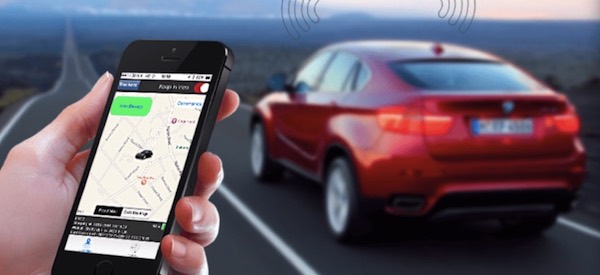
Vehicle tracking is the process of monitoring location, movement, status and behaviour of a vehicle or fleet of vehicles. This is achieved by placing a GPS tracker in a vehicle. In Dubai, the law specifies that the tracker needs to be electrically connected to the vehicle. (This makes OBD trackers illegal in Dubai, though some companies use them.)
The tracker has a GPS/GNSS module which can receive signals from the corresponding satellite constellation. The tracker calculates the location of itself using triangulation and the coordinates are stored as a parameter.
The tracker is capable of storing values as parameters in the internal memory and a list of parameters are sent to the server as a record. The record is made as a sequence of parameters along with certain other information like the unique identifier of the tracker etc. This protocol is different for different tracker manufacturers.
The communication with the server is achieved by the GSM module in the tracker which connects to the internet through the GSM cellular network.
If the tracker is moving, the change in calculated location per second is the speed of movement of the tracker. This is stored as a parameter. In some trackers, this is the parameter “speed”.
A number of other parameters like the direction of movement, the altitude, the number of satellites from which signals are available, the voltage available for the tracker, the GSM cell identifiers, signal strength, GSM providers unique identifier and more are also available which can be sent to the server as per the configuration of the tracker.
The records thus sent to the server is processed, analyzed and turned into information by management reporting tools in conjunction with a visual display on computerised mapping software.
The live movement of the vehicle on a map, along with details like engine status (On or Off), speed, distance travel etc enable real-time monitoring of your fleet. This can bring in a radical change in accountability as well as operational efficiency.
Special conditions like over speeding, engine idling (resting while keeping the engine on can cause a lot of fuel wastage resulting in a less cost-effective operation), joyriding, vehicle usage in out of bounds areas etc can be monitored real-time and notified immediately to the supervisors enabling immediate intervention before further damages occur.
Comprehensive tracking reports and analysis are also available for auditing and archiving purposes.
12 thoughts on “Vehicle Telematics”